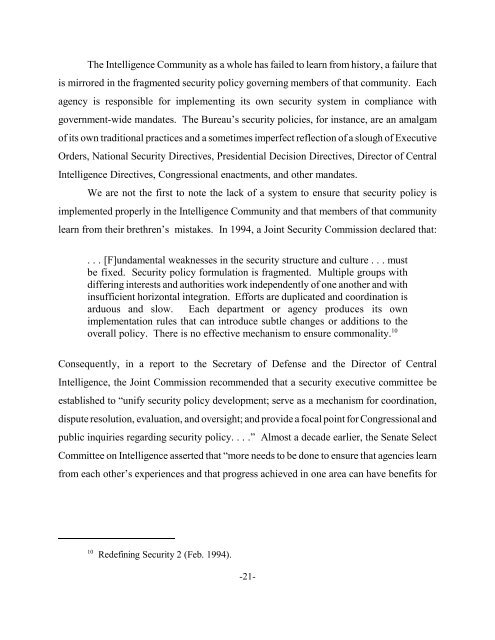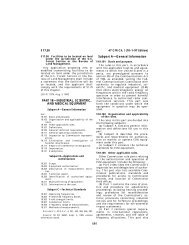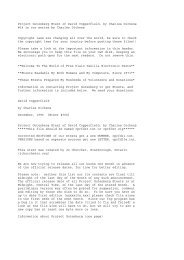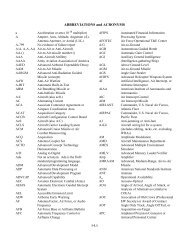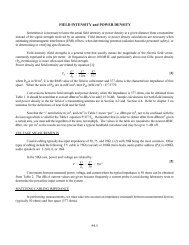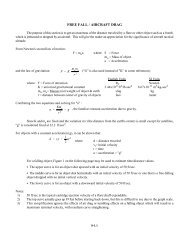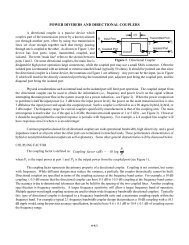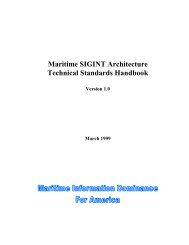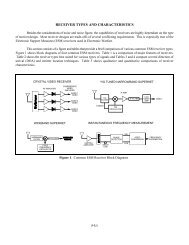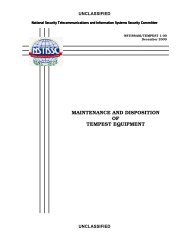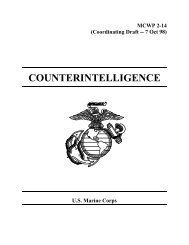A Review of FBI Security Programs
A Review of FBI Security Programs
A Review of FBI Security Programs
You also want an ePaper? Increase the reach of your titles
YUMPU automatically turns print PDFs into web optimized ePapers that Google loves.
The Intelligence Community as a whole has failed to learn from history, a failure that<br />
is mirrored in the fragmented security policy governing members <strong>of</strong> that community. Each<br />
agency is responsible for implementing its own security system in compliance with<br />
government-wide mandates. The Bureau’s security policies, for instance, are an amalgam<br />
<strong>of</strong> its own traditional practices and a sometimes imperfect reflection <strong>of</strong> a slough <strong>of</strong> Executive<br />
Orders, National <strong>Security</strong> Directives, Presidential Decision Directives, Director <strong>of</strong> Central<br />
Intelligence Directives, Congressional enactments, and other mandates.<br />
We are not the first to note the lack <strong>of</strong> a system to ensure that security policy is<br />
implemented properly in the Intelligence Community and that members <strong>of</strong> that community<br />
learn from their brethren’s mistakes. In 1994, a Joint <strong>Security</strong> Commission declared that:<br />
. . . [F]undamental weaknesses in the security structure and culture . . . must<br />
be fixed. <strong>Security</strong> policy formulation is fragmented. Multiple groups with<br />
differing interests and authorities work independently <strong>of</strong> one another and with<br />
insufficient horizontal integration. Efforts are duplicated and coordination is<br />
arduous and slow. Each department or agency produces its own<br />
implementation rules that can introduce subtle changes or additions to the<br />
overall policy. There is no effective mechanism to ensure commonality. 10<br />
Consequently, in a report to the Secretary <strong>of</strong> Defense and the Director <strong>of</strong> Central<br />
Intelligence, the Joint Commission recommended that a security executive committee be<br />
established to “unify security policy development; serve as a mechanism for coordination,<br />
dispute resolution, evaluation, and oversight; and provide a focal point for Congressional and<br />
public inquiries regarding security policy. . . .” Almost a decade earlier, the Senate Select<br />
Committee on Intelligence asserted that “more needs to be done to ensure that agencies learn<br />
from each other’s experiences and that progress achieved in one area can have benefits for<br />
10<br />
Redefining <strong>Security</strong> 2 (Feb. 1994).<br />
-21-


